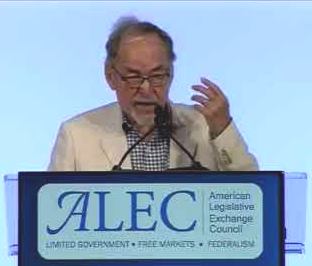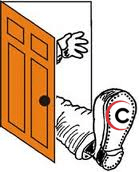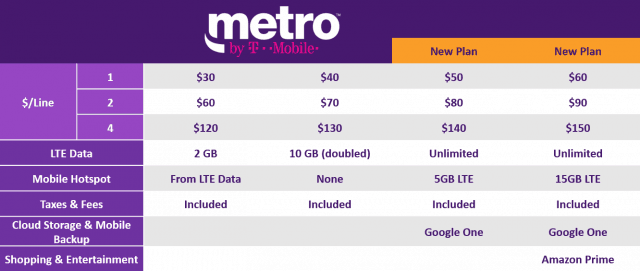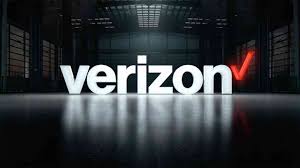
Down one big member — Verizon
Verizon has quit the American Legislative Exchange Council (ALEC), a corporate funded alliance between big business and Republican state lawmakers, after right-wing activist David Horowitz used a guest appearance at the 45th ALEC Annual Meeting in New Orleans to launch into a tirade against opponents of President Donald Trump, claiming Democrats are socialists bent on attacking traditional American values.
To rousing applause from many of the 1,500 legislators and lobbyists in attendance, Horowitz used two speeches to attack the LGBTQ community, people of color, public education, feminism, gender equality, and the rights of women to seek independent access to reproductive healthcare.
Specifically, Horowitz claimed public schools are “indoctrination and recruitment centers for the Democratic party and its socialist left” and that “school curricula had been turned over to racist organizations like Black Lives Matter and terrorist organizations like the Muslim Brotherhood.” On a later panel, Horowitz told the audience Trump had not gone far enough attacking his enemies, and defended the president’s remarks calling a woman “a pig.” Those who disagreed were called “communists” by Horowitz. He also argued the United States could only have been founded by Protestant Christians.

Horowitz speaks at ALEC conference in August 2018.
The incendiary remarks are nothing new for Horowitz, who repeatedly called President Barack Obama “a secret Muslim” and sponsors a website that claims Muslim migrants are carriers of infectious disease and predators with a “violent lust for ‘white’ women.”
Rep. Chris Taylor (D-Wisc.) attends ALEC events often to learn more about what the opposition is doing. Her observations from this year’s conference reflect ALEC in disarray, as the formerly unified, corporate-focused group is becoming more fragmented as emboldened right-wing activists demand a voice at the table.
They want state’s rights, except when they don’t. The same contradiction is evident with their struggle with local control–sometimes they like it, sometimes they don’t. The defining factor is whether these levels of government promote the far-right ALEC agenda. It is getting harder and harder for ALEC to ignore these internal contradictions.
And there are visible cracks in ALEC world. Collectively, this was the messiest and least disciplined ALEC conference I have attended since 2013. In the energy task force, presentations were all over the place. A natural gas and electricity supplier went off script by openly discussing the billions in subsidies the oil and gas industry receives. There was silence in the crowded task force room, filled with fossil fuel producers and lobbyists.
[…] In the Health and Human Services task force, the Goldwater Institute and Buckeye Foundation were in a tizzy because the Affordable Care Act (ACA) was still in existence and the left seemed to win that war, at least for now. How could it be, they moaned, when Republicans are in charge of EVERYTHING? They whined that the “debacle of last year was horrible” and that Congress wouldn’t touch another repeal with a 10-foot poll. So, 100 conservative groups came together to propose an alternative plan that guts the ACA, again. But the list was messy and confusing, and even the presenters seemed doubtful their plan would ever succeed.
But the biggest disaster I have ever seen at an ALEC conference was on a panel about the Convention of States (COS) project. COS is mobilizing in states to call an Article V Constitutional Convention for the purposes of amending the federal constitution by passing a balanced budget amendment, term-limits for federal judges, and who knows what else. One of the key speakers was right-wing provocateur David Horowitz. Horowitz is listed in a Southern Poverty Law Center (SPLC) report published by Alternet with the title “10 of America’s Most Dangerous Hatemongers”.
After converting from being a Marxist decades ago, Horowitz now runs his own right-wing think tank, bankrolled to the tune of $3.4 million by the Milwaukee-based Bradley Foundation, according to the Center for Media and Democracy. Horowitz gained recent fame as a key mentor of Trump advisor Stephen Miller, the man behind Trump’s family separation policy according to the Atlantic.
[…] ALEC is moving into dangerous territory. Despite the formidable infrastructure they have built over 45 years, their control of 33 state legislatures and their hordes of corporate cash that perpetually grease their wheels, the organization seems to be increasingly in disarray and in an identity crisis. While simultaneously distancing themselves from the chaos and corruption of President Trump, the reality is that they need him, and his hate-mongering, to further the foundation of their right-wing agenda–gutting the ACA and federal conservation standards, repealing workers’ rights, pushing down wages and privatizing public education.
And so the Horowitz’s of the world, who ALEC at least publicly has kept at a distance during my tenure, are now becoming part of the ALEC universe. Are ALEC supporters, including their corporate funders, willing to embrace this hate-mongering to continue to advance their corporate agenda?
 Horowitz’s brand of politics may be popular with party activists, but corporate ALEC members are more concerned about their public image.
Horowitz’s brand of politics may be popular with party activists, but corporate ALEC members are more concerned about their public image.
After Horowitz’s appearance, Verizon notified ALEC it was resigning from the group.
“Our company has no tolerance for racist, white supremacist or sexist comment or ideals,” a Verizon spokesperson said in a statement.
It is a severe blow to ALEC, which welcomed Verizon as a dues paying member in 1988, when Verizon lobbyist Ron Scheberle served as chairman of ALEC’s board.
ALEC’s damage control effort came in a statement to the press:
ALEC takes speaker vetting seriously and—in partnership with meeting sponsors—applies a rigorous process to identify speakers on important matters of public policy. Each speaker is apprised of the ALEC policy focus, how to address the audience and what issues not to discuss. ALEC does not work on social issues. Rather it focuses on limited government, free markets and federalism at the intersection of the economy and public policy.
In this case, the speaker was advised of the program parameters and did not abide the process.
Upon learning of concern following the conclusion of remarks, ALEC staff removed the video archive of the livestream and ceased promotion of the speech as the comments were inconsistent with the manner in which speeches are offered at ALEC.
ALEC was launched to give its corporate members and lobbyists direct access to state legislators to shepherd corporate ghost-written bills into state laws or at least heavily influence members’ bills to make them corporate-friendly. In some cases, corporate-written “model bills” were adopted word-for-word by some state legislatures and became law, with the help of Republican support and co-sponsors.

Rep. Taylor
Verizon and other telecom company members like Comcast and AT&T have benefited handsomely from membership in ALEC, successfully pushing through state laws for statewide video franchising, eliminating local control over cable television providers, pole attachment and zoning reform for wireless companies, working to eliminate universal service obligations and regulatory oversight for landline service, state bans on municipal broadband competition, and most recently working to stop states from writing their own net neutrality provisions to replace those lost on the federal level.
ALEC has always maintained close ties to Republicans and its deep pocketed corporate members. But until recently, it has usually shied away from headlining lightning rod social issues out of deference to its controversy-shy corporate members.
Horowitz’s remarks, live-streamed across the internet by ALEC, may have been the final straw for Verizon. In late August, 79 public interest and environmental groups co-signed a letter to ALEC members drawing attention to Horowitz’s remarks and asking companies to leave the group for good.
“Make no mistake, your continued financial support of ALEC is an endorsement of this dangerous vision for our country,” the letter said.
It’s also apparently bad for business.
David Horowitz speaking at 2018 ALEC Conference in New Orleans, La. on Aug. 10, 2018. (17:51)


 Currently, UK customers subscribing to the full Sky HD package, including the Sky Q set-top box, pay up to $119 a month. In Germany, the smaller “full package” costs $82 a month after promotional pricing expires. Comcast is likely to raise prices significantly over the next few years, possibly reaching $150 a month in the UK and $100 in Germany. In contrast, Netflix is building a giant market share in Europe keeping pricing low. A 4-screen subscription to Netflix currently costs $13 a month in the UK, with Netflix’s new Ultra subscription priced at $19.96 in Germany.
Currently, UK customers subscribing to the full Sky HD package, including the Sky Q set-top box, pay up to $119 a month. In Germany, the smaller “full package” costs $82 a month after promotional pricing expires. Comcast is likely to raise prices significantly over the next few years, possibly reaching $150 a month in the UK and $100 in Germany. In contrast, Netflix is building a giant market share in Europe keeping pricing low. A 4-screen subscription to Netflix currently costs $13 a month in the UK, with Netflix’s new Ultra subscription priced at $19.96 in Germany.

 Subscribe
Subscribe
 AT&T’s Environment, Health, and Safety Division offered a presentation at the 2010 International Telecommunications Safety Conference warning about the perils of old lead-sheathed phone cables, claiming “underground cable presents real possibilities for overexposure to lead:”
AT&T’s Environment, Health, and Safety Division offered a presentation at the 2010 International Telecommunications Safety Conference warning about the perils of old lead-sheathed phone cables, claiming “underground cable presents real possibilities for overexposure to lead:”
 Verizon Wireless claims it is not intentionally slowing data services for its customers in North & South Carolina, despite growing complaints from customers about slow speeds.
Verizon Wireless claims it is not intentionally slowing data services for its customers in North & South Carolina, despite growing complaints from customers about slow speeds. “We lost power/cable and were using my Verizon unlimited data plan for internet access, and were very frustrated when attempting to access pages with dynamic content,” he wrote. “This is not typically a problem in central North Carolina, a high-coverage area. It seemed clear our data was being throttled.”
“We lost power/cable and were using my Verizon unlimited data plan for internet access, and were very frustrated when attempting to access pages with dynamic content,” he wrote. “This is not typically a problem in central North Carolina, a high-coverage area. It seemed clear our data was being throttled.”

 Horowitz’s brand of politics may be popular with party activists, but corporate ALEC members are more concerned about their public image.
Horowitz’s brand of politics may be popular with party activists, but corporate ALEC members are more concerned about their public image.
